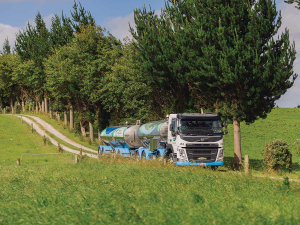New Zealand trade officials are watching the escalating trade war between the US and China with mounting concern and anxiety.
Deputy Secretary Trade and Economic at MFAT Vangelis Vitalis says the deepening trade war is creating “a general sense of uncertainty”.
“We have two major global economies not getting on, that’s always bad news for small and medium sized economies that look for larger ones to lead the way or at least not stand in the way of progress in developing the international rules based system,” he says.
Vitalis made this comment during a global trade update webinar organised by Beef+Lamb NZ two weeks ago.
He says the trade war is creating more uncertainty and more risks out there for businesses.
There are some direct risks to NZ. He notes that the free trade agreement with China has been part of NZ’s growth story and helped us weather the global financial crisis.
He says key for NZ going forward will be how the phase one deal between the US and China is implemented.
“Are they going to buy more beef or sheepmeat from the US and what it means for displacing our own products?
“What preferential access they have into each other’s markets...those are the risks out there.”
Vitalis urged exporters to report any pattern of behaviour that caused market issues to MFAT.
“That’s the key focus for us over the next 12 to 18 months, to help exporters overcome barriers.”
Three years ago, US President Donald Trump launched the trade war to pressure Beijing to implement significant changes to aspects of its economic system that he claimed facilitated unfair Chinese trade practices, including forced technology transfer, limited market access, intellectual property theft, and subsidies to state-owned enterprises.
Trump argued that unilateral tariffs would shrink the US trade deficit with China and cause companies to bring manufacturing jobs back to the US.
Between July 2018 and August 2019, the US announced plans to impose tariffs on more than US$550 billion of Chinese products, and China retaliated with tariffs on more than US$185 billion of US goods.











